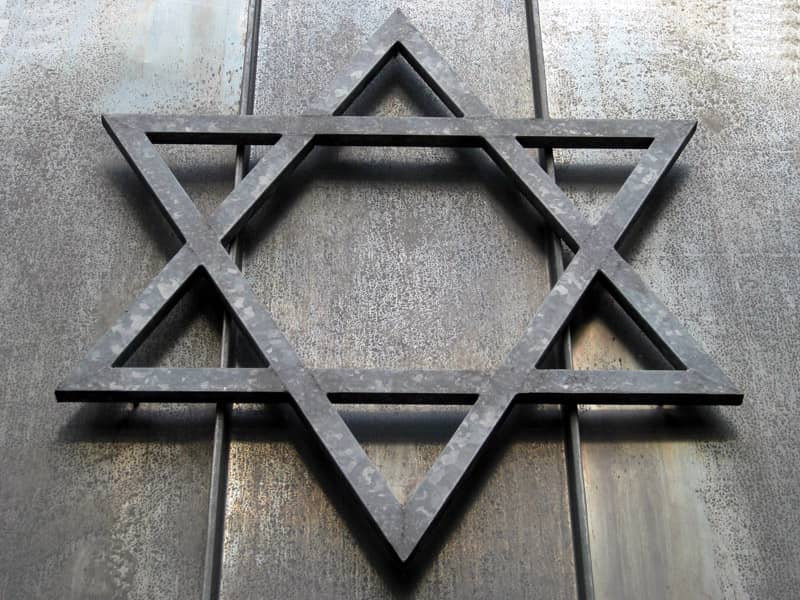Rabbi Arthur Hertzberg clearly believes the latter. In a recent column on Beliefnet, he characterizes the trip as an overhyped fraud. He goes so far as to condemn the Anti-Defamation League for "glorifying Pope John Paul II" in an ad celebrating the visit and to express his distaste that "the leaders of the rabbinic bodies of Reform and Conservative Judaism have issued a joint statement hailing the pope's visit to the Holy Land as a profound turning point in Jewish-Catholic relations, an act of reconciliation of historic proportions."
Rabbi Hertzberg's bile is really not a reaction to the pope's trip but the reflection of a querulous spirit. His continued attacks on this pope reflect what Rabbi Leon Klenicki of the Anti-Defamation League has called "a theology of pointing fingers."
For the record is clear: This pope has radically changed the Catholic Church's relationship with Jews and Judaism. Building on earlier statements that began to distance the church from its sorry history regarding Jews, John Paul II has made an appreciation of Judaism as a living faith one of the hallmarks of his papacy.
It's surely not accidental that full diplomatic relations between the Vatican and Israel were achieved on his watch. As early as 1980, he spoke of Judaism as "the Old Covenant, never revoked by God."
He was the first pope ever to visit a synagogue. During that visit, in April 1986, to the synagogue of Rome, he told the congregation that "you are our dearly beloved brothers, and, in a certain way, it could be said that you are our elder brothers." He went on to state that "Jews are beloved of God, who has called them with an irrevocable calling."
Now we have extraordinary photos of the pope at Yad Vashem and at the Western Wall, placing a small piece of paper into the wall, as so many Jewish pilgrims have done through the ages. Those pictures were not only worth a thousand words; they also moved a million hearts.
Rabbi Hertzberg asks us not to exaggerate the pope's work in Catholic-Jewish relations, and we should not; there remain areas where Jews and this pope will disagree, sometimes vehemently. But let's not deprecate the amazing changes in Catholic appreciation of Judaism under his papacy.
This papal visit will have a lasting impact in many ways that are not yet visible. The Vatican curia, the bureaucracy that governs the church on a day-to-day basis, never shared this pope's lifelong familiarity with Jews (the product of his youth in Poland) or the strength of his desire for a rapprochement with Israel. Yet many key members of that curia--who will remain powerful in Rome when this papacy has ended--have now had a taste of Israel and, perhaps as important, of the Palestinians.
Will they soon forget the scene in Jerusalem when Sheik Taysir Tamimi, the grand mufti's deputy, disrupted an inter-religious event with the pope and Israel's chief rabbi by launching into a diatribe against Israel's "occupation" of Jerusalem? Will they forget the grand mufti's own nasty politicization of the visit (he refused to join in the interfaith gathering convened by the pope, and on the Temple Mount he too lectured the pope about Palestinian claims to Jerusalem)? In contrast, the Vatican got full cooperation from Israeli officials. Sources in Rome tell me that this was a lesson learned the hard way, and one that has put the Israel-Palestinian struggle in a new light for some Vatican officials.
Here's a prediction: Even those Jewish leaders who now carp that the pope's visit was not perfect will greatly miss him as soon as he is gone--even Rabbi Hertzberg! For today, the Roman Catholic Church is led by a man to whom Jews and Judaism were never strangers, much less enemies. He has used his papacy to build Catholic understanding of Jews, and especially of Judaism as a living faith--an "irrevocable calling."
Surely his papacy doesn't have many more years, and soon Pope John Paul's work will be done. But he will have left behind the tools, and the challenges, to occupy Catholics and Jews for decades. If his papacy, including such emotional high points as his visit to the Rome synagogue and now to Israel, doesn't constitute a turning point in Catholic-Jewish relations, it will be our fault--not his.

